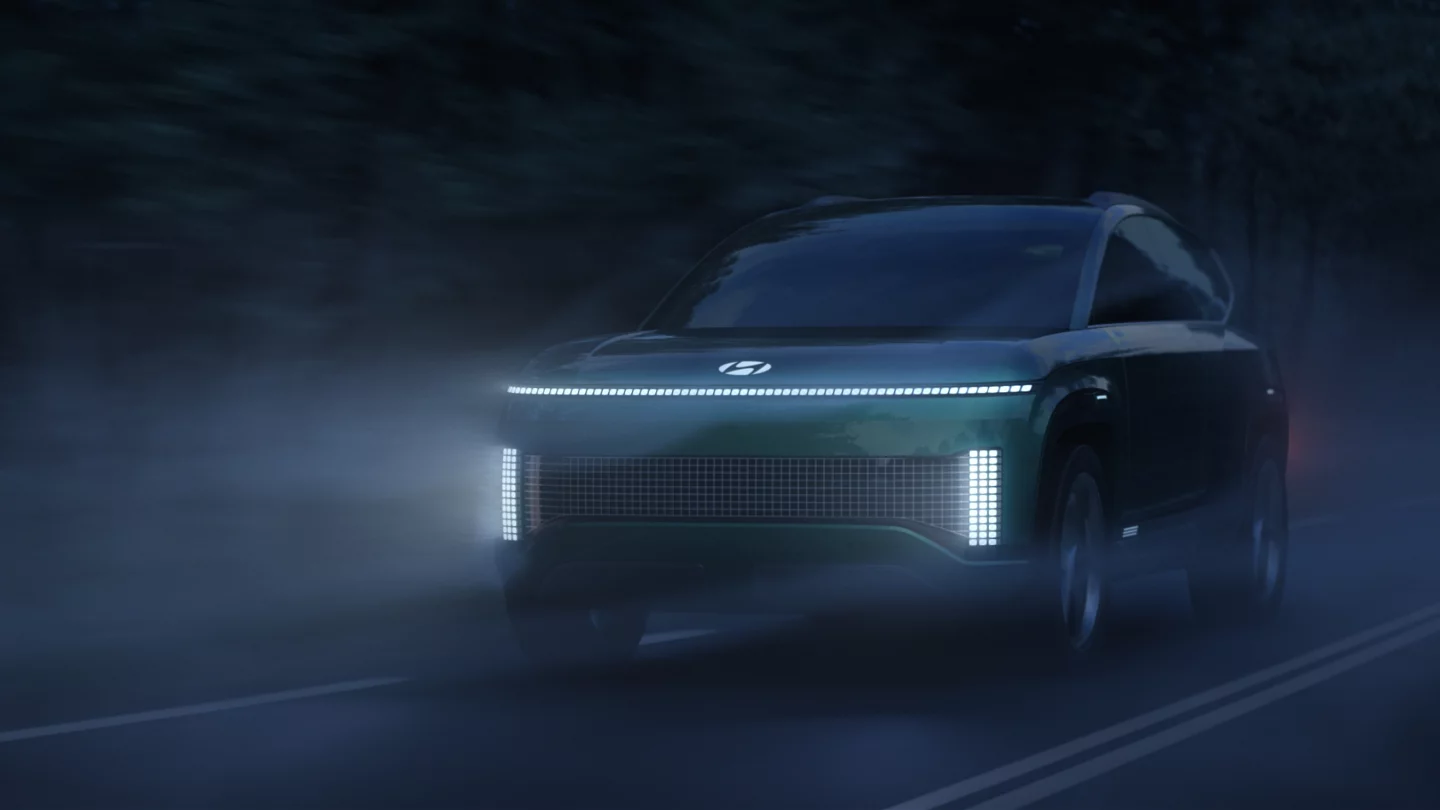Hyundai Ioniq 7
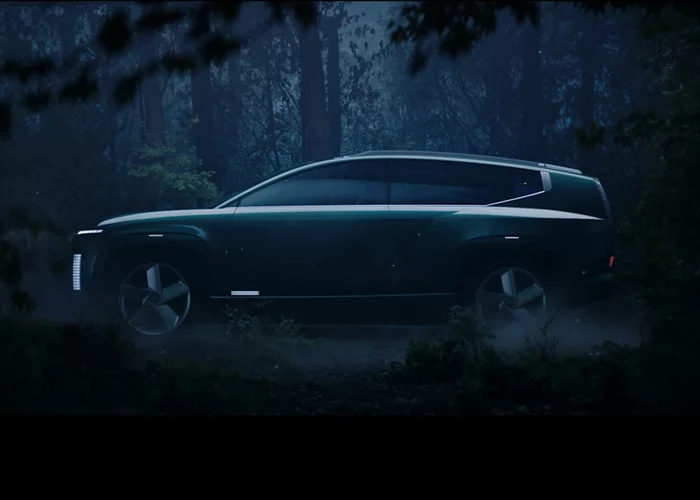
The Hyundai Ioniq 7, a future large all electric SUV, is anticipated to kick off its production in July 2024 and is currently not a production vehicle. It will plan to come equipped with an array of features including semi-autonomous driving capabilities, wireless integration with Apple CarPlay and Android Auto, a expansive panoramic sunroof named the ‘Vision Roof,’ and even LG home appliances for enhanced convenience. Its unveiling is scheduled for the Busan Motor Show in June 2024, and it is expected to arrive at U.S. dealerships towards the end of 2024. The production of the Ioniq 7 will take place in South Korea as well as at a newly established dedicated EV manufacturing facility in Georgia, USA.
Hyundai Ioniq 7 innovative features
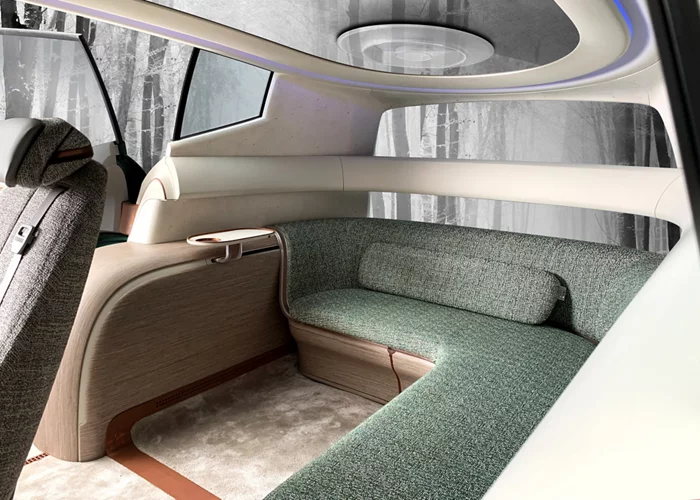
The Hyundai Ioniq 7 is poised to make a significant impact in the electric SUV market by planning to incorporate a suite of cutting-edge features aimed at enhancing safety, convenience, and the overall driving experience. Among its most anticipated features are semi-autonomous driving capabilities, which promise to reduce driver fatigue and improve road safety by assisting in navigation, lane keeping, and speed control with a retractable control stick and conventional steering wheel likely. It will also plan to feature a flat floor and an accomodating interior atmosphere. This technology represents a step towards fully autonomous vehicles, offering a glimpse into the future of driving.
In addition to autonomous driving features, the Ioniq 7 is set to offer a digital key system. This innovative feature allows drivers to use their smartphones as a key, providing a convenient and secure way to access and start the vehicle without the need for a traditional physical key. This digital key system is expected to integrate seamlessly with the owner's lifestyle, offering ease of use and enhanced security.
Wireless connectivity for Apple CarPlay and Android Auto is another highlight, eliminating the need for physical cables and offering drivers a safer and more intuitive way to access smartphone features such as navigation, music, and hands-free communication. This integration ensures that drivers can stay connected while keeping their focus on the road.
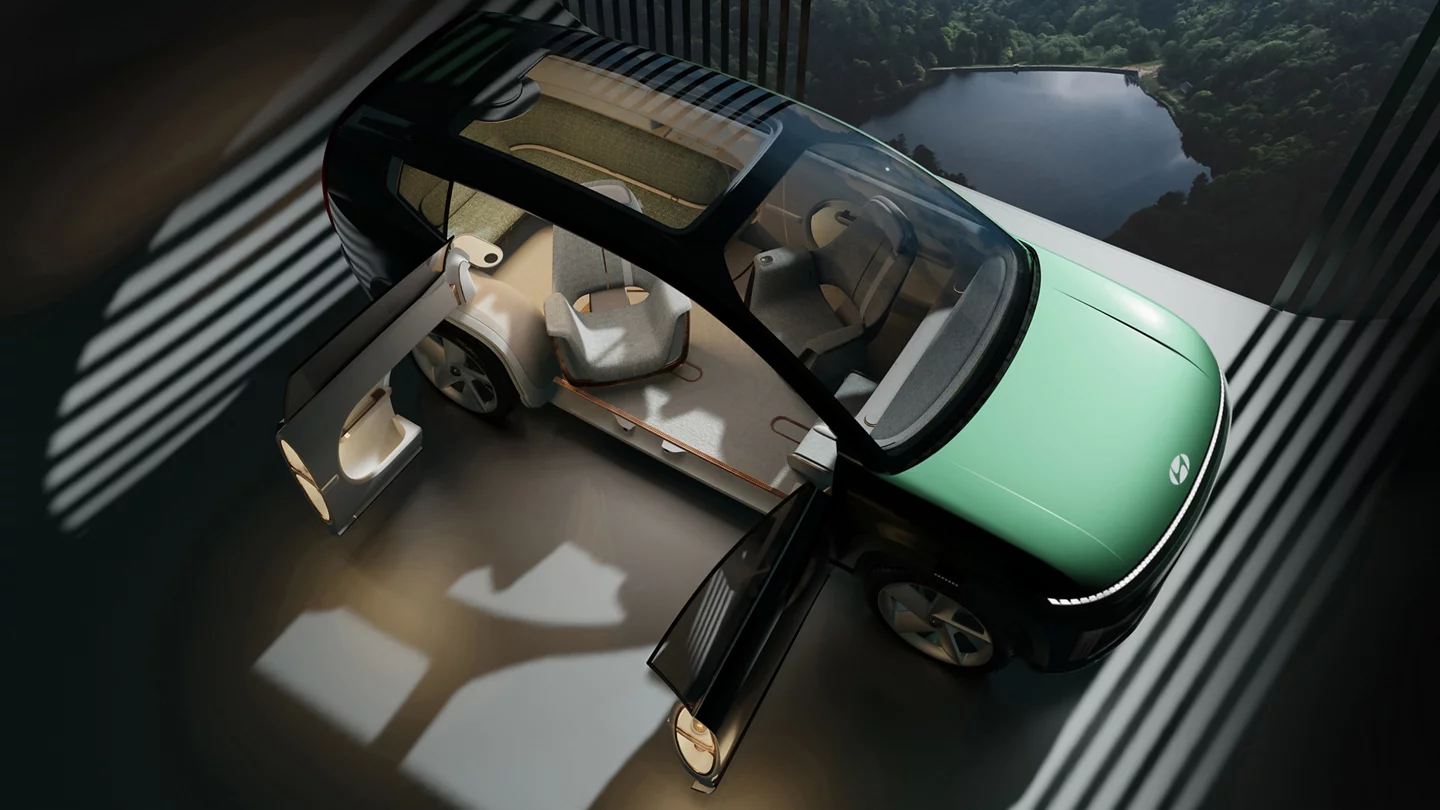
The Vehicle to Load (V2L) functionality is an innovative feature that allows the Ioniq 7 to supply electric power to external devices, such as camping equipment, electric bicycles, or even other electric vehicles, making it a versatile companion for outdoor activities and emergency situations. This capability transforms the vehicle into a mobile power source, providing convenience and utility beyond transportation.
A panoramic "Vision Roof" is as of right now set to offer occupants an immersive experience, enhancing the sense of space and openness within the vehicle. This feature not only adds to the aesthetic appeal of the Ioniq 7 but also provides a unique way to connect with the environment, whether it's stargazing at night or enjoying panoramic views during the day.
In certain markets, the Ioniq 7 will likely feature virtual mirrors, which replace traditional side mirrors with camera-based systems that project the vehicle's surroundings onto internal displays. This technology can improve aerodynamics, reduce wind noise, and offer enhanced visibility under various driving conditions, contributing to both efficiency and safety.
Furthermore, the integration of LG home appliances is set to redefine lifestyle integration within a vehicle. This partnership aims to provide seamless connectivity between the vehicle and home devices, offering users the ability to control home appliances remotely from their vehicle, enhancing the convenience and quality of daily life.
Hyundai Ioniq 7 Production Plans and Release Schedule
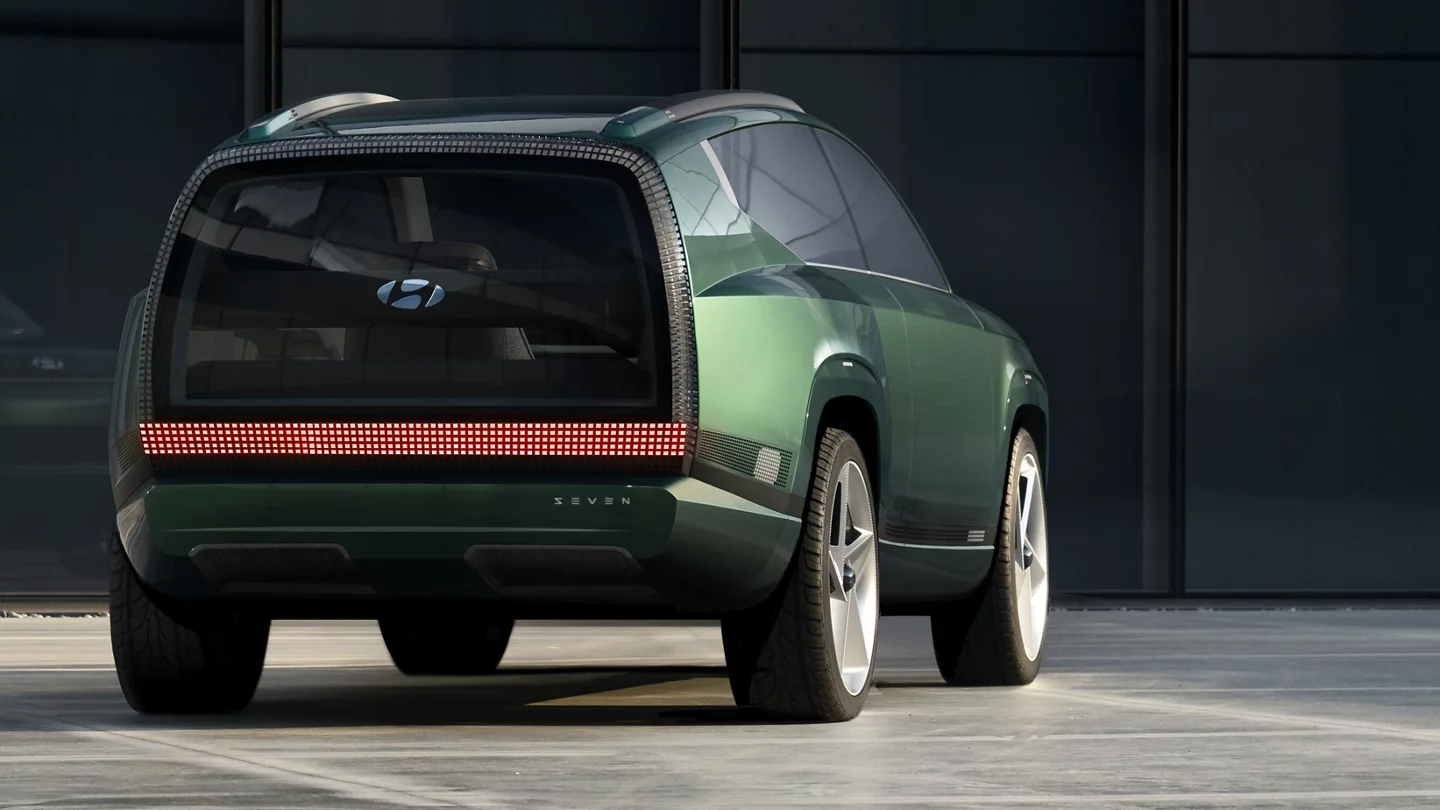
Hyundai has outlined ambitious plans for the launch of its latest electric SUV, the Ioniq 7, setting a production commencement date for July 2024 in South Korea. The initial phase of manufacturing will be concentrated at the Hyundai Asan plant, a facility renowned for its cutting-edge production techniques and a pivotal part of Hyundai's global production network. This strategic move underscores Hyundai's commitment to maintaining a strong production foothold in its home country while also leveraging the advanced capabilities of its South Korean facilities.
In addition to its South Korean production base, Hyundai is expanding its manufacturing landscape to include a new, state-of-the-art dedicated electric model plant in Bryan County, Georgia, USA. This significant expansion into the U.S. market represents Hyundai's strategic investment in the growing demand for electric vehicles across North America. The Georgia plant is scheduled to start producing the Ioniq 7 in the first half of 2025, highlighting Hyundai's plans for a phased global rollout of its electric SUV.
The global debut of the Ioniq 7 is eagerly anticipated at the Busan Motor Show in June 2024, where Hyundai plans to showcase the vehicle's innovative features and design. This event, a major fixture in the automotive industry calendar, will provide Hyundai with a platform to highlight the Ioniq 7's advanced technologies and environmental credentials to a global audience.
Following its international unveiling, the Ioniq 7 is expected to make its way to American dealerships by late 2024. This timeline indicates that U.S. consumers won't have to wait long after the SUV's global debut to see it in showrooms, allowing Hyundai to quickly capitalize on the growing appetite for electric vehicles in the U.S. market. The introduction of the Ioniq 7 to American roads is set against the backdrop of increasing demand for sustainable and innovative transportation solutions, positioning Hyundai at the forefront of the electric vehicle revolution as a large electric SUV.
Differences between a Concept Vehicle and a Production Model
Concept vehicles often showcase futuristic design, innovative technology, and experimental features without the constraints of practicality, cost, or production feasibility. They're used to gauge public interest and demonstrate a brand's vision. Production vehicles, in contrast, are designed for mass manufacturing and sale, emphasizing practicality, safety, and regulatory compliance. They may incorporate elements from concept cars but are modified to meet real-world requirements, including cost-effectiveness, manufacturability, and adherence to safety and environmental regulations. The Hyundai Ioniq 7 in its current form is a concept vehicle and as we get closer to a production version some of these features may change.




